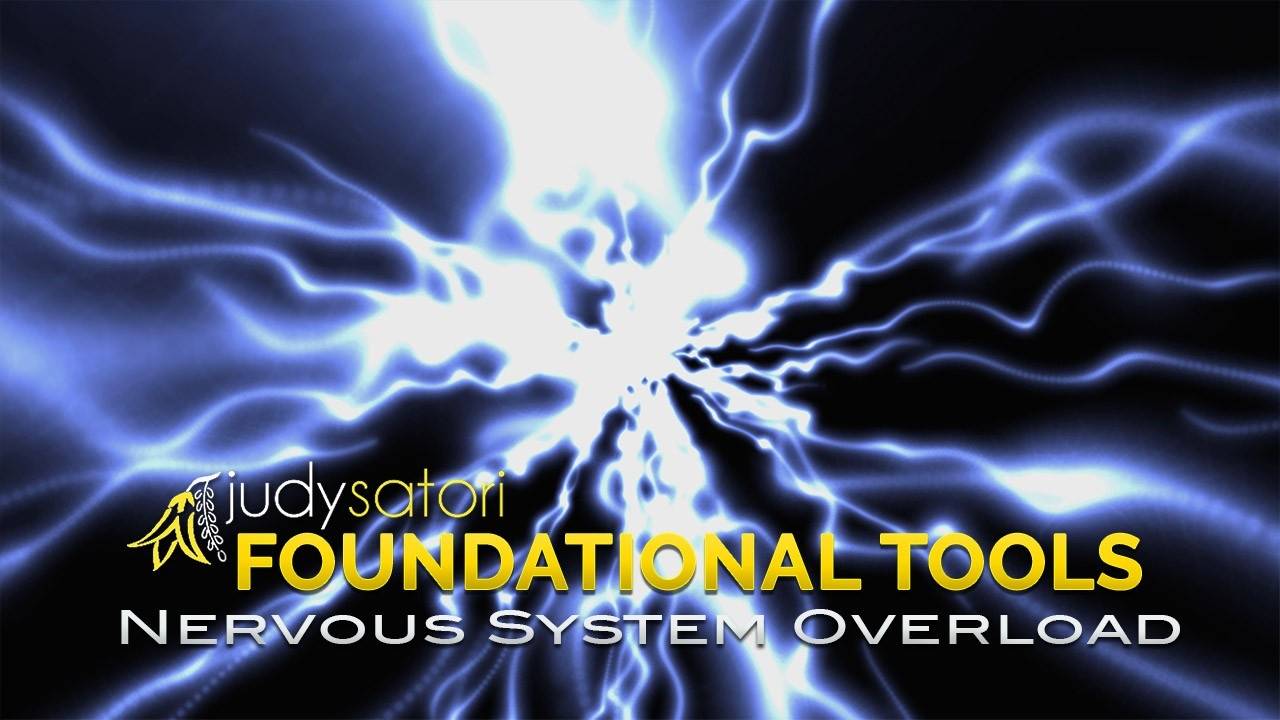Living in today's fast-paced world, many individuals experience nervous system overload, a condition where the body's nervous system becomes overwhelmed due to excessive stress, anxiety, or environmental factors. This growing concern affects millions globally, impacting both physical and mental well-being. Understanding nervous system overload treatment is crucial to restoring balance and achieving long-term health.
As the demands of modern life continue to rise, it is essential to recognize the signs of nervous system overload and take proactive steps to address them. This condition can manifest in various ways, from chronic fatigue and insomnia to digestive issues and emotional instability. By exploring effective treatment options, individuals can regain control over their health and improve their quality of life.
This comprehensive guide delves into the causes, symptoms, and treatment options for nervous system overload. We will explore both conventional and alternative approaches, providing practical strategies to help you manage and overcome this challenging condition. With expert insights and actionable advice, this article aims to empower readers to take charge of their nervous system health.
Read also:Medium Brown Auburn Hair Color The Perfect Shade To Enhance Your Natural Beauty
Table of Contents
- Understanding Nervous System Overload
- Symptoms of Nervous System Overload
- Causes of Nervous System Overload
- Diagnosing Nervous System Overload
- Conventional Nervous System Overload Treatment
- Alternative Treatments for Nervous System Overload
- Lifestyle Changes for Managing Nervous System Overload
- Nutritional Strategies for Nervous System Health
- Mental Health Approaches to Nervous System Overload
- Preventing Nervous System Overload
- Conclusion: Taking Control of Your Nervous System Health
Understanding Nervous System Overload
The nervous system plays a critical role in maintaining overall health and well-being. It acts as the body's communication network, transmitting signals between the brain and other parts of the body. However, when exposed to prolonged stress or environmental triggers, the nervous system can become overwhelmed, leading to nervous system overload.
What is nervous system overload? Simply put, it is a state where the body's stress response remains activated for extended periods, causing physical and emotional exhaustion. This condition often stems from a combination of external pressures and internal vulnerabilities, making it essential to address its root causes.
Research indicates that nervous system overload is closely linked to chronic stress, which can have detrimental effects on both physical and mental health. According to the American Psychological Association, chronic stress is a significant contributor to various health issues, including cardiovascular disease, diabetes, and mental health disorders.
How the Nervous System Works
The nervous system consists of two main components: the central nervous system (CNS) and the peripheral nervous system (PNS). The CNS includes the brain and spinal cord, while the PNS comprises nerves that connect the CNS to the rest of the body.
- Central Nervous System (CNS): Responsible for processing information and coordinating responses.
- Peripheral Nervous System (PNS): Transmits signals between the CNS and other parts of the body, enabling movement and sensation.
Understanding how these systems interact is key to developing effective nervous system overload treatment strategies.
Symptoms of Nervous System Overload
Recognizing the signs of nervous system overload is the first step toward seeking appropriate treatment. Symptoms can vary widely, affecting physical, emotional, and cognitive functioning. Some common indicators include:
Read also:Grease Good Sandy Exploring The Iconic Character And Her Legacy
- Chronic fatigue
- Insomnia or sleep disturbances
- Headaches or migraines
- Digestive issues such as irritable bowel syndrome (IBS)
- Emotional instability, including anxiety and depression
- Difficulty concentrating or memory problems
These symptoms often overlap with other health conditions, making it crucial to consult a healthcare professional for accurate diagnosis and treatment.
Physical Manifestations
Physical symptoms of nervous system overload can significantly impact daily life. Chronic fatigue, for instance, may make it challenging to complete routine tasks or maintain productivity at work. Similarly, sleep disturbances can lead to a cycle of exhaustion and stress, further exacerbating the condition.
Causes of Nervous System Overload
Several factors contribute to nervous system overload, ranging from external stressors to internal vulnerabilities. Understanding these causes is essential for developing personalized treatment plans.
- Chronic Stress: Prolonged exposure to stress triggers the body's "fight or flight" response, leading to nervous system overload.
- Environmental Factors: Pollution, noise, and other environmental stressors can overwhelm the nervous system.
- Emotional Trauma: Past experiences of trauma or unresolved emotional issues may contribute to nervous system dysregulation.
By addressing these underlying causes, individuals can take proactive steps toward healing and recovery.
Stress and the Nervous System
Stress is one of the primary contributors to nervous system overload. When the body perceives a threat, the autonomic nervous system activates the "fight or flight" response, releasing stress hormones like cortisol and adrenaline. While this response is beneficial in short-term situations, chronic stress can lead to nervous system dysregulation and long-term health issues.
Diagnosing Nervous System Overload
Accurate diagnosis of nervous system overload involves a comprehensive evaluation of physical, emotional, and lifestyle factors. Healthcare professionals may use various tools and assessments to determine the extent of nervous system dysfunction.
Diagnostic methods may include:
- Physical examinations
- Psychological assessments
- Neurological testing
Early diagnosis is crucial for effective treatment and prevention of long-term complications.
Importance of Professional Evaluation
Seeking professional help is essential for individuals experiencing symptoms of nervous system overload. A qualified healthcare provider can identify underlying causes and recommend appropriate treatment options, ensuring a tailored approach to recovery.
Conventional Nervous System Overload Treatment
Conventional treatment approaches for nervous system overload focus on addressing both physical and emotional symptoms. These methods often involve a combination of medication, therapy, and lifestyle modifications.
- Medications: Prescription medications such as antidepressants and anti-anxiety drugs may help manage symptoms.
- Therapy: Cognitive-behavioral therapy (CBT) and other forms of psychotherapy can address emotional and psychological factors contributing to nervous system overload.
While conventional treatments offer effective solutions for many individuals, they may not address the root causes of nervous system dysregulation.
Role of Medication
Medications play a vital role in managing symptoms of nervous system overload. However, they should be used as part of a comprehensive treatment plan, complemented by lifestyle changes and therapeutic interventions.
Alternative Treatments for Nervous System Overload
Alternative therapies offer additional options for managing nervous system overload. These approaches often focus on holistic healing, emphasizing the mind-body connection and promoting natural balance.
- Meditation and Mindfulness: Practices such as mindfulness meditation can reduce stress and improve nervous system function.
- Acupuncture: This traditional Chinese medicine technique involves inserting thin needles into specific points on the body to restore energy flow and balance.
Research supports the effectiveness of alternative treatments in managing nervous system overload, with many individuals reporting improved symptoms and overall well-being.
Integrative Approaches
Integrating conventional and alternative treatments can enhance recovery outcomes. By combining medical interventions with complementary therapies, individuals can address both symptoms and underlying causes of nervous system overload.
Lifestyle Changes for Managing Nervous System Overload
Adopting healthy lifestyle habits is essential for managing and preventing nervous system overload. Simple changes in daily routines can have a significant impact on overall health and well-being.
- Regular exercise: Engaging in physical activity helps reduce stress and improve nervous system function.
- Healthy sleep habits: Prioritizing quality sleep supports nervous system recovery and overall health.
- Stress management: Practicing stress-reducing techniques such as deep breathing and yoga can help maintain nervous system balance.
Incorporating these lifestyle changes into daily routines can create a solid foundation for nervous system health.
Exercise and Nervous System Health
Exercise plays a crucial role in maintaining nervous system health. Regular physical activity promotes the release of endorphins, reduces stress, and enhances overall well-being. According to the World Health Organization, regular exercise is one of the most effective ways to prevent and manage nervous system-related conditions.
Nutritional Strategies for Nervous System Health
Nutrition is a key component of nervous system health. A balanced diet rich in essential nutrients can support nervous system function and reduce the risk of overload.
- Omega-3 fatty acids: Found in fish, nuts, and seeds, these essential fats support brain health and nervous system function.
- Vitamins and minerals: B vitamins, magnesium, and zinc play critical roles in nervous system regulation.
By prioritizing nutrient-dense foods, individuals can optimize their nervous system health and reduce the risk of overload.
Importance of Hydration
Staying hydrated is essential for maintaining nervous system health. Dehydration can impair cognitive function and contribute to nervous system dysregulation. Drinking adequate water throughout the day supports overall well-being and nervous system balance.
Mental Health Approaches to Nervous System Overload
Mental health plays a vital role in nervous system health. Addressing emotional and psychological factors can significantly improve symptoms of nervous system overload.
- Therapeutic Interventions: Working with a mental health professional can help individuals develop coping strategies and address underlying issues contributing to nervous system overload.
- Support Networks: Building strong social connections and support systems can enhance resilience and promote recovery.
Mental health approaches emphasize the importance of self-care and emotional well-being in managing nervous system-related conditions.
Emotional Resilience
Developing emotional resilience is key to overcoming nervous system overload. By cultivating a positive mindset and practicing self-compassion, individuals can better navigate life's challenges and maintain nervous system balance.
Preventing Nervous System Overload
Prevention is the best strategy for managing nervous system overload. By adopting proactive measures, individuals can reduce their risk of developing this condition and maintain optimal health.
- Regular check-ups: Scheduling routine health assessments can help identify potential issues early.
- Stress reduction: Implementing stress-reducing techniques into daily routines can prevent nervous system overload.
- Healthy lifestyle: Maintaining a balanced diet, regular exercise, and adequate sleep supports overall nervous system health.
Preventive measures empower individuals to take control of their health and well-being, reducing the likelihood of nervous system overload.
Conclusion: Taking Control of Your Nervous System Health
Nervous system overload is a growing concern in today's fast-paced world, affecting millions of individuals globally. By understanding its causes, recognizing symptoms, and exploring effective treatment options, individuals can take proactive steps toward healing and recovery.
This comprehensive guide has provided expert insights and actionable strategies for managing nervous system overload. From conventional treatments to alternative therapies and lifestyle changes, there are numerous approaches to support nervous system health and well-being.
We invite you to take action by implementing the strategies outlined in this article. Share your thoughts and experiences in the comments below, and explore other resources on our site to deepen your understanding of nervous system health. Together, we can create a healthier, more balanced future.


